
Chinese Whispers
A fortnightly podcast hosted by Cindy Yu on Chinese politics, society, and more
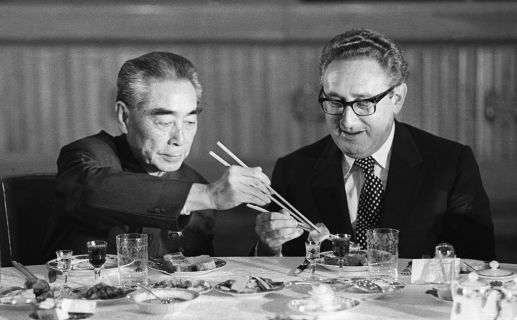

A fortnightly podcast hosted by Cindy Yu on Chinese politics, society, and more

Imagine a time traveller from Mao Zedong’s China – say a Red Guard – landing in a Chinese city today, nearly half a century since Mao’s death in 1976 brought the Cultural Revolution to an end. Picture her in baggy unisex khaki and blunt bob, gaping at women her age prancing past in heels and short skirts. See her take in the soaring buildings, bustling shopping centres and pumping night clubs. She looks at a newspaper. Some things make sense: ‘America’s democracy is in decline,’ one headline declares. There are familiar reports on model workers and the same sort of photos of leaders visiting factories and welcoming foreign presidents. But

It was an extraordinary statement, given all the bluster that had gone before it. Tariffs on Chinese goods will ‘come down substantially’ from their current level of 145 per cent, Donald Trump said on Tuesday, adding that ‘We are doing fine with China … We’re going to live together very happily and ideally work together’. Perhaps the message was aimed at placating the World Bank and International Monetary Fund spring meetings taking place in Washington this week. The IMF slashed its growth forecasts for the United States, China and most other countries, blaming US tariffs and warned that things could get a lot worse. Xi is calculating that Trump is

Since Trump’s inauguration in January, not a day has gone by when supporters of a liberal international order have not sunk their heads deep into their hands. The global trade war that has erupted between the US and the rest of the world is just the latest episode in the American President’s mission to overturn the old order (despite the unexpected 90-day pause announced on Wednesday for everyone but China). If this was not disturbing enough, liberal internationalists also need to contend with what will replace it. What rules and norms will prevail, or rather whose? Disconcertingly, some Europeans appear to be buying the charm offensive The People’s Republic of China

China has accused Washington of ‘blackmail’ and said it will ‘fight to the end’ after Donald Trump threatened overnight to impose an additional 50 per cent tariff on Chinese imports. At the same time, President Xi Jinping is seeking to present himself as a responsible champion of the international trading system and defender of globalisation against the Trump wrecking ball. Neither position bears scrutiny; the latter is almost laughable, since it is Beijing’s persistent disregard of international rules that has fuelled the anger in America in the first place. It all smacks of desperation and not the ‘super economy’ of CCP propaganda As part of its strategy, the Chinese Communist
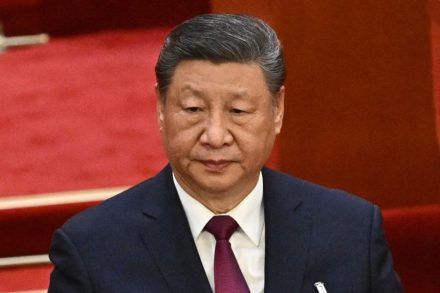
The Nato secretary general, Mark Rutte, has warned Russia that the alliance would defend Poland against any aggression and would do so without restraint. On a visit to Warsaw, he said: When it comes to the defence of Poland and the general defence of Nato territory, if anyone were to miscalculate and think they can get away with an attack on Poland or any other ally, they will be met with the full force of this fierce alliance. Our reaction will be devastating. This must be clear to Vladimir Vladimirovich Putin and anyone else who wants to attack us. Would Nato’s ‘full force’ be brought to bear against Russia if
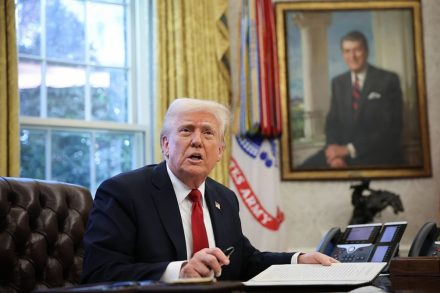
Tesla and its hyper-active boss Elon Musk are having a bad month. On both sides of the Altantic, there have been protests against the ‘Nazi-mobile’ and the ‘Swasti-car’. The electric vehicle (EV) manufacturer’s sales are collapsing across Europe, and its stock is in freefall. On top of all that, its main rival, China’s BYD, has just announced a super-faster charger that allows you to ‘fill up’ your EV as quickly as you once could your petrol car. All companies go through bad patches, especially when they are leading a new industry. But Tesla is losing its technological lead to China. That could prove fatal. There is growing evidence that China’s
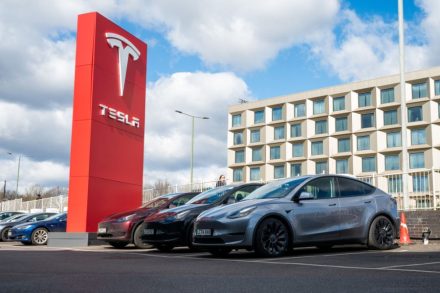
48 min listen
Freddy Gray is joined with Michael Auslin who is an academic and historian at the Hoover Institute and author of the Substack ‘THE PATOWMACK PACKET’. They discuss China’s response to Trump’s tariffs, whether China is serious about threats of war and how concerned Trump is about China’s relationship with Russia.
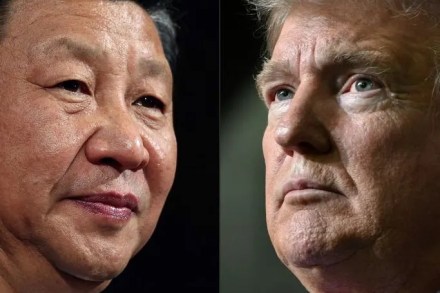
In the fight against climate change, China loves to present itself as the world’s White Knight. Armed with wind turbines and solar panels, EVs and batteries, it will rescue us from oblivion if only we would let it. There’s no shortage of western politicians, academics and organisations who are happy to go along with the idea that China is an ally in the global green revolution. The argument, broadly put, is that whatever our differences on other things (trifles such as security, economics and human rights), surely we can agree on saving the planet. Rachel Reeves seemed to reach that conclusion when she returned from her visit to Beijing last
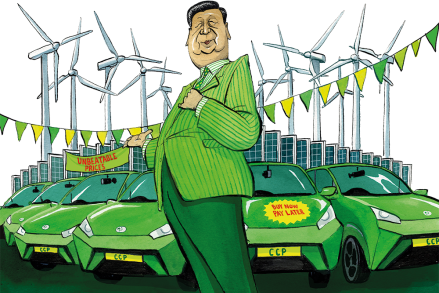
They were only six words on a website, but they helped maintain Beijing’s fiction that Taiwan is part of its territory. Their disappearance has infuriated China’s communist leaders. ‘It gravely contravenes international law and the basic norms of international relations,’ raged Guo Jiakun, a spokesman for China’s ministry of foreign affairs, on Monday. The website in question was that of the US State Department. The words – ‘we do not support Taiwan independence’ – have been removed from its ‘fact sheet’ along with a tweak to another section that implies stronger support for Taiwan’s right to join international organisations, which Beijing has consistently blocked. The changes were welcomed by the

Over the weekend, Donald Trump described his sweeping 10 per cent tariffs against Chinese goods as an ‘opening salvo’. Within minutes of them taking effect at midnight last night, Beijing retaliated with targeted tariffs of its own against US coal, liquified natural gas (LNG), farm equipment and cars. It also announced export controls on a string of critical minerals to ‘safeguard national security’, and what it described as an ‘anti-trust’ investigation into Google. Like most Western internet and social media firms, Google is already banned from China, but earns money from Chinese businesses advertising abroad. The US President has described tariffs as ‘the most beautiful word’ In spite of the

My late mother proudly possessed a curious object: a tea cosy decorated with the image of a Sputnik. In 1957, when Russia launched the world’s first satellite, this item would have been a charmingly incongruous mix of old and new technology. But today, younger readers might struggle to identify the functions of both a tea cosy and the shiny, spiked silver ball that was Sputnik 1. Back in the day, the world was shocked by the news that the Soviets had beat the West in the race to space. The New York Times mentioned the satellite in 279 articles in October 1957, the month of its launch. So profound was

This week, Chinese technology has shown the West the challenge it faces – ruthless, implacable and impossible to ignore. The unveiling of the Chinese artificial intelligence model DeepSeek has not only disrupted the business models of America’s tech behemoths; it has also shown that, in the race to develop the tools for economic hegemony, Beijing is set on supremacy. The launch of DeepSeek came just days before the CIA’s conclusion that, on the balance of probabilities, the Covid virus was incubated in a Wuhan lab – a man-made killer, not a product of nature’s evolutionary mischief. China stands revealed as a power bent on using science to secure not human

Sometimes a new technology comes along that immediately shakes the world. The release this week of the new Chinese artificial intelligence (AI) tool, DeepSeek-R1, is one such moment. Despite Washington’s efforts to restrict Beijing’s development of AI, including an export ban on advanced microchips, researchers in China have created an AI tool that not only exceeds the performance of American AI models like OpenAI’s ChatGPT, but does so at a fraction of the cost. If we are to believe the hype, it took just $6 million (£5 million) to build DeekSeep-R1, compared to more than $100 million (£80 million) for ChatGPT. This is the equivalent of building the fastest Formula

For nearly a decade, the Chinese Communist Party has censored Winnie the Pooh, owing to internet memes comparing the slightly rotund President Xi Jinping to the cheerful yellow bear. So, what happens if you ask China’s new budget AI chatbot, DeepSeek, about him? Computer says no. But how rigorous were DeepSeek’s creators? When we asked our first question, DeepSeek began to answer – only for its censorship to activate, overwriting the reply with an anodyne attempt to change the subject. Early adopters, however, had discovered a loophole: by replacing certain letters with numbers (e.g., A with 4, E with 3), users could bypass some of the restrictions. Here’s what happened
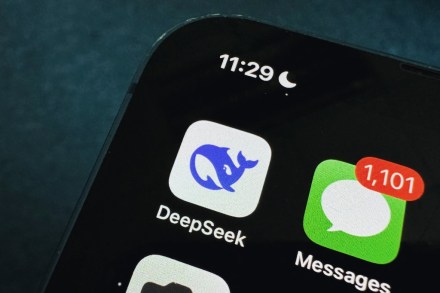

The arrest of Huawei’s chief financial officer Meng Wanzhou in Canada in 2018, and the ensuing United States ban on high-end semiconductor exports to China, transformed Donald Trump’s “trade war” into a “tech war”. At the time, the US clearly felt it had a comparative advantage in technology, and that if it had to fight a battle against China, then picking tech as the battlefield made good sense. In September 2021, US commerce secretary Gina Raimondo, declared that: “If we really want to slow down China’s rate of innovation, we need to work with Europe”. As a result, Europe was roped into a cold war most European businesses – not

The race for ‘AI supremacy’ is over, at least for now, and the US didn’t win. Over the last few weeks, two companies in China released three impressive papers that annihilated any pretence that the US was decisively ahead. In late December, a company called DeepSeek, apparently initially built for quantitative trading rather than large language models (LLMs), produced a nearly state-of-the-art model that required only roughly 1/50th of the training costs of previous models – instantly putting them in the big leagues with American companies like OpenAI, Google, and Anthropic, both in terms of performance and innovation. A couple of weeks later, they followed up with a competitive (though
When the security services accessed the mobile phone of Yang Tengbo, the alleged Chinese spy who became a confidant and business partner of the Duke of York, they found a document in which Yang said of the duke, ‘He is in a desperate situation and will grab onto anything’. We can only assume there are memos circulating in the Chinese Communist Party (CCP) this week describing the visit by Rachel Reeves in similar terms. Starmer and his ministers appear to be competing to see who can kowtow the lowest before Xi The hapless duke’s entanglement with Yang, whose exclusion from Britain was confirmed shortly before Christmas, was held up as

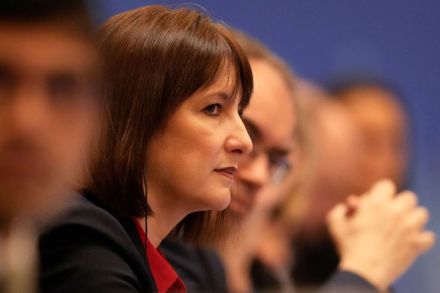
Rachel Reeves is on her way back to the UK after a brief visit to China over the weekend. The Chancellor faced calls to cancel the trip, not over alleged human rights abuses by her hosts, but instead because of the state of the UK bond market. However, those around Reeves did not seriously consider cancelling her visit to China, taking the view that to call it off would have added to a sense of panic. After borrowing costs soared in the days before she departed, Reeves abruptly cancelling the trip would have likely drawn comparisons with 1976, when chancellor Denis Healey turned back at Heathrow, aborting a planned trip
Forty years ago today, British prime minister Margaret Thatcher and China’s Premier Zhao Ziyang signed the Sino-British Joint Declaration, an international treaty designed to pave the way for the handover of Hong Kong to China on 1 July 1997. Meeting in the Great Hall of the People in Beijing, leaders of the Chinese Communist party (CCP) regime promised to respect a ‘high degree of autonomy’ for Hong Kong and uphold the territory’s way of life, including its basic freedoms and the rule of law for at least fifty years from the time of the handover. They lied – or at least, they broke their promises. Forty years on, that treaty –

As the fallout continues from the latest China spy scandal, it is hard not to conclude that Labour’s policy on Beijing – as far as one can be identified – adds up to appeasement in the vain hope of some economic crumbs from the Emperor’s table. It will certainly be seen by the Chinese Communist Party (CCP) as a green light for stepping up what Ken McCallum, the head of MI5, has described as ‘a sustained campaign on a pretty epic scale’. ‘National security is the most important issue of our times,’ said Keir Starmer at the time of 80th anniversary of the D-Day landings, a few weeks before the general
